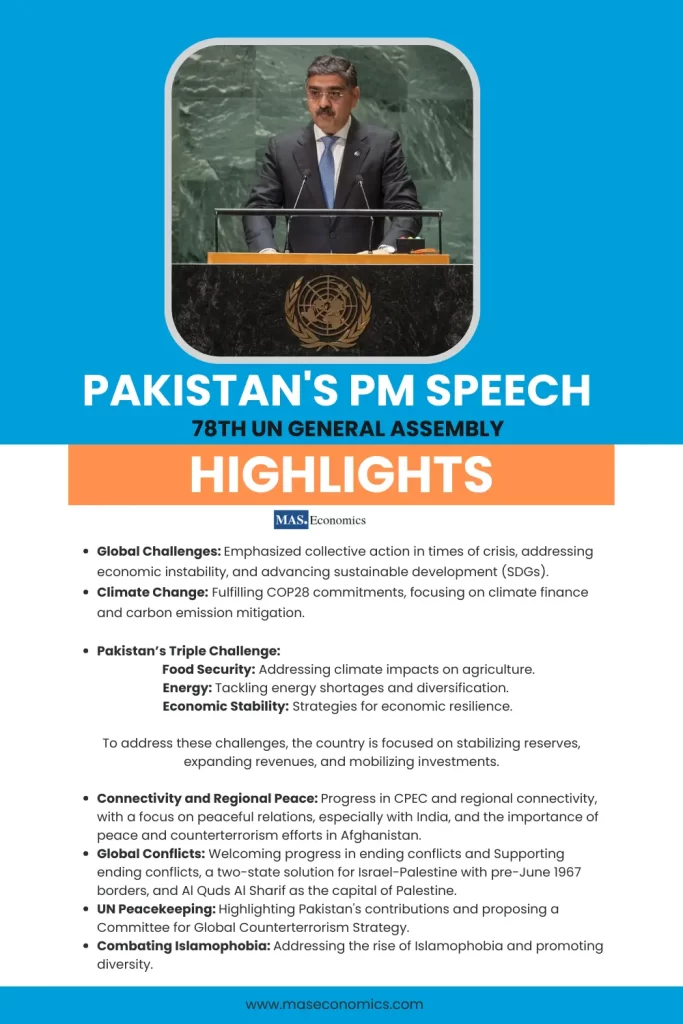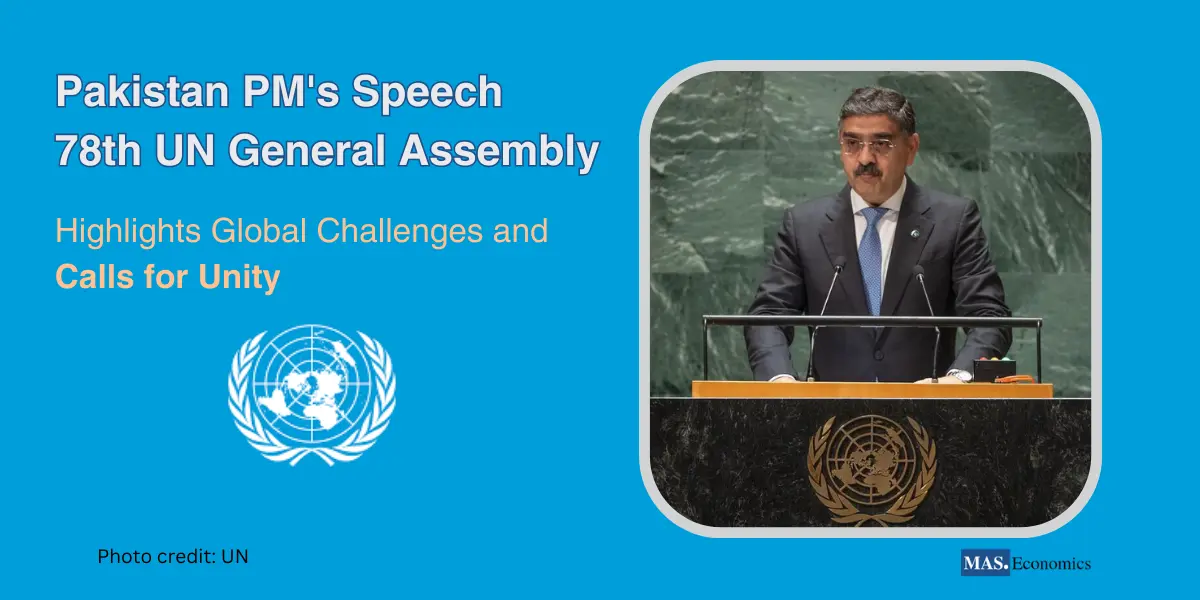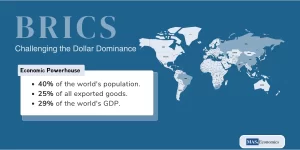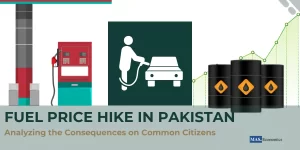Welcome to MASEconomics, your premier destination for in-depth economic analysis.
In a historic address at the 78th annual session of the United Nations General Assembly, Pakistan’s Prime Minister emphasized the critical importance of global cooperation in the face of pressing challenges. The speech covered various topics, from the economic outlook to climate change, regional conflicts, and the need to combat terrorism and extremism.

Challenging Times Require Collective Action
The Prime Minister began by acknowledging modern history’s tense and pivotal moment. Conflicts are raging in multiple regions, and tensions between global powers continue to escalate. He prioritized geo-economics over geopolitics, emphasizing that the world cannot afford a new Cold War. Instead, worldwide cooperation and collective action are essential to address the world’s most pressing challenges.
Economic Challenges Demand Immediate Attention
The Prime Minister expressed concern about the gloomy global economic prospects. Sluggish growth and the threat of high-interest rates potentially triggering a recession are causing significant economic instability. Exogenous shocks, including the COVID-19 pandemic, conflicts, and climate change, have devastated many developing countries, reversing decades of development progress. Addressing these economic challenges requires a united effort.
Sustainable Development Goals and Debt Resolution
The Prime Minister highlighted the commitments made at the recent Sustainable Development Goals (SDG) Summit. Implementing the “SDG Stimulus,” rechanneling unused Special Drawing Rights for development, expanding concessional lending, and resolving the debt problems of distressed countries are critical steps toward achieving global development goals.
Climate Change and Financial Commitments
Pakistan looks forward to fulfilling climate change commitments made at COP28, mainly providing over $100 billion in annual climate finance, with at least half allocated for adaptation in developing countries. The Prime Minister emphasized operationalizing the Fund and funding arrangements for Loss and Damage while accelerating carbon emission mitigation targets.
Pakistan’s Triple Challenge: Food, Fuel, and Finance
Pakistan faces a triple challenge of food security, energy, and economic stability. The impact of climate change, particularly severe floods, has taken a significant toll on the country. The Prime Minister expressed gratitude for the commitments of over $10.5 billion to support Pakistan’s comprehensive recovery plan, the 4RF Plan, aimed at resilience-building.
Economic Recovery and Investment Facilitation
Pakistan’s government is committed to rapid economic recovery by stabilizing foreign exchange reserves, expanding domestic revenues, and mobilizing domestic and external investments. A Special Investment Facilitation Council has been established to expedite investment decisions, with 28 priority projects identified in agriculture, mining, energy, and IT sectors.
China-Pakistan Economic Corridor (CPEC) and Connectivity
Pakistan is actively progressing with the second phase of CPEC, which covers railways, infrastructure, and manufacturing projects. The country also looks forward to implementing “Connectivity” projects with Central Asia.
Regional Peace and Relations with India
The Prime Minister emphasized Pakistan’s desire for peaceful and productive relations with all neighboring countries, including India. He highlighted that Kashmir remains the key to peace between the two nations and called for implementing Security Council resolutions, including a UN-supervised referendum for the people of Jammu and Kashmir.
Peace in Afghanistan and Counterterrorism Efforts
Pakistan considers peace in Afghanistan a strategic imperative and advocates for humanitarian assistance to the Afghan population. The country’s priority is to prevent and counter-terrorism, seeking Kabul’s cooperation while taking necessary measures to combat externally encouraged terrorism.
Global Conflicts and Palestine
The Prime Minister welcomed progress in ending conflicts in Syria and Yemen and expressed hope for normalization between Saudi Arabia and Iran. He reiterated Pakistan’s support for a two-state solution for Israel-Palestine with pre-June 1967 borders, and Al Quds Al Sharif as the capital of Palestine.
UN Peacekeeping and Combating Terrorism
Pakistan highlighted its significant contributions to UN peacekeeping missions and stressed the need to ensure the safety and security of peacekeepers facing complex challenges, especially from criminal and terrorist groups. Pakistan proposed the creation of a Committee of the General Assembly to oversee the implementation of the Global Counterterrorism Strategy.
Combating Islamophobia and Promoting Diversity
The Prime Minister addressed the rise of Islamophobia and called for measures to combat it. He emphasized the importance of cherishing and celebrating diversity while respecting religious symbols, scriptures, and personages.
Strengthening Multilateralism for a Peaceful World
The Prime Minister stressed the importance of effective multilateralism within the framework of the United Nations to address global challenges. He advocated for reducing excellent power rivalry, ensuring adherence to the UN Charter, implementing Security Council resolutions, addressing the root causes of conflicts, and respecting principles such as non-use of force, self-determination, sovereignty, and territorial integrity.
Conclusion
Prime Minister Pakistan’s speech at the 78th UN General Assembly session highlighted the critical need for global cooperation and collective action to address pressing challenges. From economic stability to climate change, regional conflicts, and terrorism, the Prime Minister underscored the importance of uniting for a more equitable and peaceful world. His call for action serves as a reminder of the UN’s vital role in fostering international collaboration and resolving complex global issues.
Stay informed, stay ahead, and keep learning with MASEconomics!




